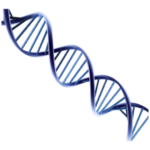Can you trust Wikipedia?
Reading the entry on “encyclopedia” leaves one with the impression that it was written by someone who had no previous knowledge of the subject and who, once he got into it, found it did not interest him very much. He browsed here and there in one or more reference works and noted what seemed important, but had no understanding of the cultural and historical contexts involved. In other words, it is a school essay, sketchy and poorly balanced.
The article is of modest length at 2,000 words (compare Britannica’s corresponding article at about 26,000 words). The longest discussion of a particular work is of Thomas Browne’s Pseudodoxia Epidemica, hardly an encyclopedia at all. The 120-odd words on Browne contrast oddly with the treatment given what was arguably the most influential encyclopedia in European history: “The French translation of [Chambers] was the inspiration of the Encyclop�die, perhaps the most famous early encyclopedia, edited by Jean le Rond d’Alembert and Denis Diderot and published from 175 [sic] to 1772 in 28 volumes, 71,818 articles, 2,885 illustrations.” Was it famous for the number of its illustrations, one is left to wonder? (And by the way, the full first edition had 35 volumes.)
A cynic might conclude that the whole article exists chiefly as a context for this paragraph: “Traditional encyclopedias are written by a number of employed text writers, usually people with an academic degree. This is not the case with Wikipedia, a project started in 2001 with the goal to create a free encyclopedia. Anyone can add or improve text, images, and sounds … By 2004 the project has managed to produce over a million articles in over 80 languages.”
Guardian Unlimited Technology | Technology | Can you trust Wikipedia?

 Previous Post
Previous Post